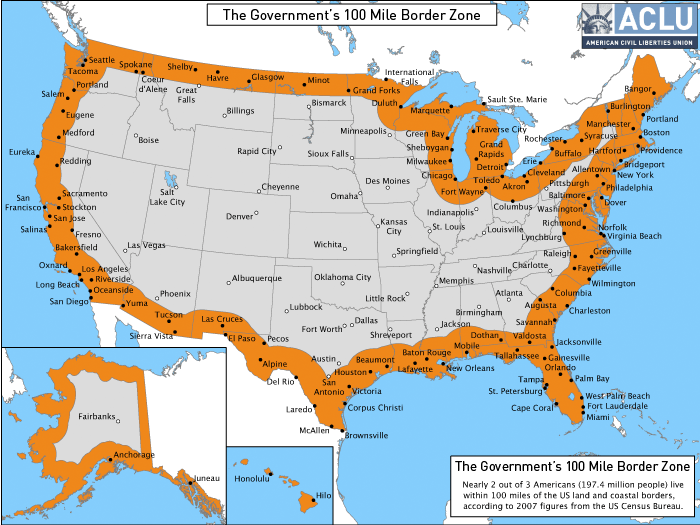Yesterday, the Supreme Court paved the way towards an even more controlling police state. The Court ruled almost unanimously (8-1) in favor of police legally voiding your 4th Amendment right of unreasonable search and seizure. Want to know more? You should as this is one of the many current events that is stripping you of the freedoms your forefathers fought for.
As evident in YouTube videos across the internet, you’ll find law enforcement officers questioning citizens who have done no wrong-doing. It might be because of how they are dressed, the color of their skin, or what part of town they are in. Regardless, it is illegal for the police to detain someone without reasonable suspicion that they have or are about to commit a crime.
What exactly does “reasonable” suspicion even mean nowadays?
Hmmmm, that sounds a little bit up for interpretation….
So, is it reasonable to violate people’s bodies and take blood samples from unsuspecting motorists at a DUI checkpoint? Because that’s happening across the country.
Is it reasonable to suspect that anyone within 100 miles of the border is not a citizen? Well, DHS has a 100 mile perimeter around the entire United States and set up multiple checkpoints where you can be detained and questioned.
God knows how many other “reasonable” things they can think of in order to detain and search you.
So, we are in agreement that the word “reasonable” is pretty vague with regards to suspicion?
Well, the 8-1 case of Heien v. State of North Carolina now just gave us a double-reasonable whammy.
If an officer makes a “reasonable” mistake about his “reasonable” suspicion, the evidence that is obtained from your search and seizure can be used against you in the court of law.
Prior to this court case, if you were illegally searched, property was seized from you, and a crime was discovered, you could fight it in court and win because your 4th amendment right was violated. Now, not so much.
But you say, “Hey, I’ve got nothing to worry about because I haven’t committed a crime!” As I’ve discussed in my post My! What Big Laws You Have, we have so many laws that Lawyer Harvey Silvergate said the average citizen commits 3 felonies a day. Think law officers searching your property really couldn’t find something?
This court case essentially gives law enforcement free reign by using the “reasonable” mistake clause. As John W. Whitehead from Rutherford.org said, “By refusing to hold police accountable to knowing and abiding by the rule of law, the Supreme Court has given government officials a green light to routinely violate the law,”
Protect Yourself NOW
You must still invoke your 4th Amendment Right if a law enforcement officer tries to illegally search or seize your property. The constitution is still the law of the land. Also, not all law officers will know of this particular case. Always ask the question, “Why am I being stopped?” and “Am I being detained or am I free to go.”
Another useful tool are some free business cards you should keep in your wallet or purse. These cards specifically call out your 5th Amendment right to remain silent. If an officer is continually trying to question you and get “reasonable suspicion”, simply hand him this card.
Remember, “Anything you say or do may be used against you in the court of law.”




